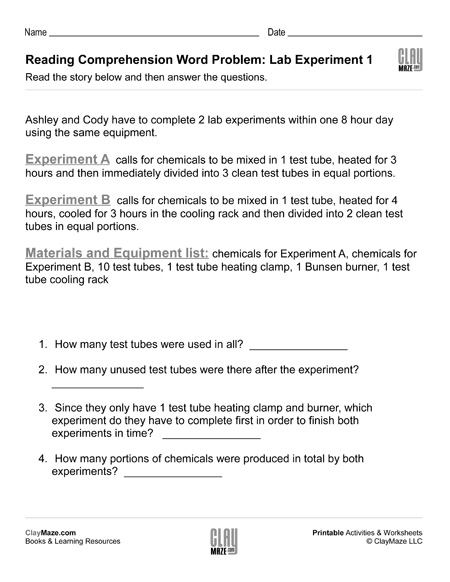This is the first of a 3 part set of worksheets which combines reading comprehension, word problems and a science lab experiment environment. Science experiments are a fun bridge between the physical world and a child’s routine world of memorization. Becoming an actual participant in the learning process rather than just the recipient of the results can spark an early enjoyment in science and discovery. All too often children can be thrust into a lab environment without a thorough understanding of scientific method, lab reports, safety procedures or any of its other intimidating nuances. Practice worksheets like this can help to ease that transition and provide a valuable STEM resource.
Lab Experiment 2 Lab Experiment 3
Download Printable PDF
